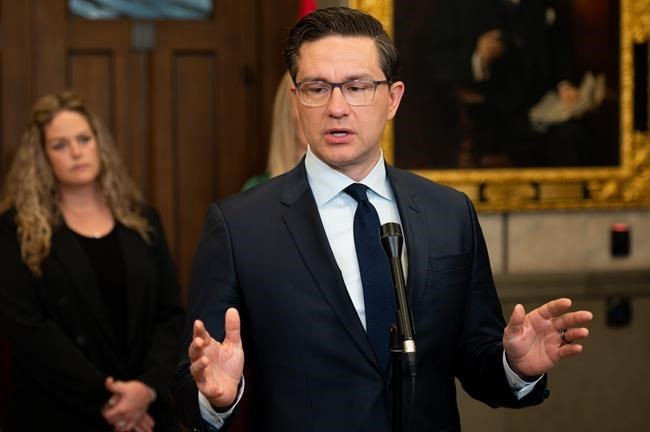OTTAWA — Government officials in the Privy Council Office discussed a Conservative private member's bill launched in response to convicted killer Paul Bernardo's transfer to a medium-security prison, noting it would likely never hit Parliament, internal emails show.
Documents obtained by The Canadian Press through access-to-information law show staff speculated about the chances the bill would ever be debated, unless the Liberal government agreed to move it up the priority list.
The bill proposed by Tory MP Tony Baldinelli, who hails from the region in Ontario where Bernardo committed his crimes, seeks to change the law so that people convicted of multiple murders would be required to serve out their entire sentences in maximum-security institutions.
"Just wondering if you have any knowledge of this," one staffer wrote to a colleague in the Privy Council Office, which supports the operations of the Prime Minister's Office and cabinet.
"No knowledge of this specific (bill)," the second staffer replied, pointing out that Baldinelli is not currently in line to bring a private member's bill forward for debate, under parliamentary rules.
"So the likelihood of this even getting through to be considered in this parliamentary session is very unlikely."
The first staffer replied: "Is there any other way for the Opposition party to advance legislation, other than via a (private member's bill)? I don't think so, but I am no expert!"
The only way it could be bumped up the priority list would be if the House of Commons agreed to do so through a motion, the second staffer wrote back, which would require the Liberal government to consent.
A spokesman for the Privy Council Office said late Wednesday the communication is consistent with the role of "providing advice" and is "procedural in nature."
Legislation proposed by opposition MPs sometimes passes, but it can be a lengthy process. Most bills don't get past the first step.
Conservative Leader Pierre Poilievre has nonetheless been calling on the Liberal government to adopt Baldinelli's bill, which he introduced before Parliament broke for summer.
Last week, Poilievre's office accused the Liberal government of "ignoring calls" from mayors of the Ontario cities of Thorold and St. Catharines for Bernardo to be returned to his maximum-security lodgings.
The government says it played no role in the decision by Correctional Service Canada.
The correctional service moved Bernardoin May, and a public uproar ensued as critics questioned the government's handling of the move and families of Bernardo's victims called for it to be reversed.
Then-public safety minister Marco Mendicino said at the time that he found the decision "shocking and incomprehensible."
Before his ouster from cabinet last month, which was widely seen as a rebuke for his handling of the Bernardo transfer and other files, Mendicino issued a series of directives to the correctional service.
They sought to ensure that any future transfers of high-profile offenders would be better communicated to public safety ministers and victims' families. Mendicino had said his staff never informed him that Bernardo would be moved until after it happened, despite his office having knowledge of the matter three months beforehand.
An internal review by the correctional service found the decision to approve a transfer request from the notorious killer and serial rapist was sound and followed all applicable laws and policies.
Bernardo is serving an indeterminate life sentence, the stiffest under Canadian law, as a dangerous offender for the kidnapping, torture and murders of teenagers Kristen French and Leslie Mahaffy in the early 1990s.
This report by The Canadian Press was first published Aug. 9, 2023.
Stephanie Taylor, The Canadian Press




